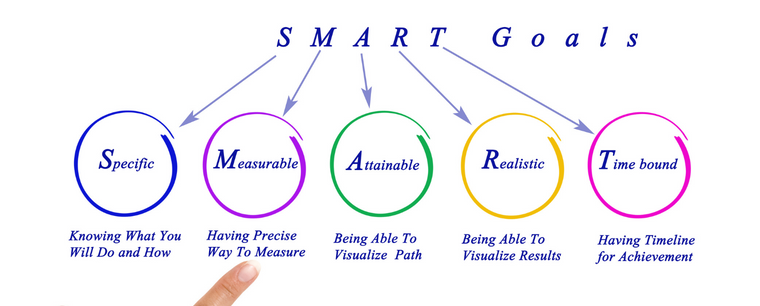This page may contain affiliate links. Please read my disclosure for more information.
If you’ve ever wanted to learn how to write a business plan, this post is for you. The best way to write a business plan as an entrepreneur is to start with a blank slate.
Begin by thinking about what you want to achieve with your business, and then work backward from there. Be realistic, and don’t be afraid to change your plan as your business grows and develops.
What is a Business Plan

A business plan is a document you create to clarify your objective and how you plan to achieve your goals. Learning how to write a business plan as an entrepreneur means you have a simple and powerful written step-by-step roadmap to building a profitable business.
It gives your company direction and describes company details such as corporate structure, target market, products or services, competition, pricing strategy, marketing, visibility and so much more.
It’s a management and planning tool you’ll use to work through the details of your business before you start – saving you time, money, and resources.
3 Main Purposes of a Business Plan
- Describes the Business
In your business plan, you’ll describe and identify ideas and opportunities that will help you analyze the feasibility of your company. Writing a business plan helps you put all your procedures and strategies into an action plan. It provides insight and answers to the who, what, where, when, and how of your business. - Outlines the goals and objectives of the company
As an entrepreneur having a business plan helps create clarity and provide direction. Whether that’s working through your customer avatar, creating a marketing and visibility strategy, or identifying leadership roles. It’s important to evaluate and break down all these areas you’ll need to consider. - Creates an effective strategy for growth
Whether you want to grow and scale your business or secure financing – you’ll need a strategy and plan in place for how to grow your company. A business plan not only helps us analyze the feasibility of a project it also forces us to think strategically about the future of the company.
How to Write a Business Plan Step-by-Step
1. Foundation

The first part of your business plan is the foundation and an overview of your company. For example, your business name, where you’ll do business, and your corporate structure.
You’ll write an elevator pitch, a short explanation of your company and who you serve. It’s what you’d say to someone in two sentences if they were to ask you what you do. You’ll also detail what products and services you offer.
Next, you’ll craft your mission statement briefly explaining why your business exists. Who does it serve, what problem(s) do your products or services solve and what results are your customers getting? Sometimes it can be helpful to come back to this and complete this last.
You’ll spend some time understanding your ideal customer also known as your client avatar. Who would buy from your business? What do they do? How old are they? etc.
Take a look at my free Launch Strong Business Plan Template.
2. Products/Services

In this section, you’ll explore your core offer which will be your products or services. What problem does your product or services solve? What type of results can your customer expect from them? What are the benefits of buying your products or services?
3. Branding

A branding strategy is your long-term plan to become the preferred brand and choice by consumers. What do you want people to feel when they interact with your business? What are your values and how do you want to be perceived by customers? How are you present and offer what you’re selling?
Developing a strong foundation and a detailed customer avatar will help make your branding vision even more clear.
4. Competition

Understanding your competition will help you understand both your and your competitor’s strengths and weaknesses. You can use this knowledge to create strategies for your marketing plan and business. How can you differentiate yourself and what pricing strategies can you establish?
5. Marketing

The marketing plan section explains in detail who your target market is and how you’re going to get your customer to buy your product or service.
6. Money

Your income streams represent the different ways you’ll generate income from each customer. It’s the various ways in which you’ll earn money from a product or service you’re offering and the strategies you’ll use to monetize your business.
7. Attraction

What is your visibility strategy? How will you attract customers to your business and turn them into leads and paying customers? Different methods may include running paid advertisements with Google Adwords, creating a lead magnet or incentive, SEO, social media, and content creation.
How to Set Goals for a Small Business
Did you know you are 42% more likely to achieve your goals if you write them down? That’s significant!
Be as specific as possible and write down your short and long-term goals. How much revenue do you want to generate? How many customers do you want to reach?

Use the effective SMART goal-setting formula. Specific, Measurable, Attainable, Relevant, and Time-Based.
- SMART Goals: Specific, Measurable, Attainable, Relevant and Time-Based.
- Specific: Be specific about what you want to accomplish. What will you accomplish and what actions will you take? Who is included in the process?
- Measurable: How will you determine if you meet the goal? What data will you use to measure the goal?
- Attainable: What can you do to make it attainable? Do you have the necessary resources and skills?
- Relevant: Is the goal in line with your overall business objective?
- Time-Based: What is the time frame for accomplishing the goal? Is there a deadline?
SMART Goals example:
If we use the smart goal example of “I want to start a blog business.” Your outline would look something like this:
Specific: I will write three blog posts per week a minimum of 1500 words.
Measurable: I’ll write on Sunday, Tuesday, and Thursday and Post on Monday, Wednesday, and Friday.
Attainable: I’ll work on writing the blog posts first and then work on monetizing them.
Relevant: Writing a blog on a topic I’m knowledgeable about will help establish me as an expert.
Time-Based: I will consistently publish new quality content to my blog and within one year start to monetize it.
Setting realistic goals will help you measure the success of your business. Make a commitment to yourself and hold yourself accountable with regular check-ins.
Conclusion
A business plan is an important document for any business, no matter how big or small. It can help you clarify your goals and objectives, strategize ways to achieve them, and track your progress over time.
I hope this guide has helped you understand the basics of writing a business plan and shown you that it’s not as daunting as it may seem. If you’re ready to start writing your business plan my free Launch Strong Business Plan will walk you through each section step by step.







+ show Comments
- Hide Comments
add a comment